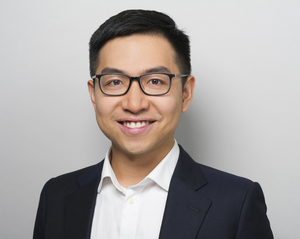個(gè)人(rén)資料
教育經曆2011. 09 ~ 2017. 07 北(běi)京大(dà)學,心理(lǐ)與認知科學學院,基礎心理(lǐ)學,博士 2007. 09 ~ 2011. 07 中山大(dà)學,心理(lǐ)學系,應用(yòng)心理(lǐ)學,學士 工作經曆2023. 09 至今 華東師範大(dà)學,心理(lǐ)與認知科學學院,紫江青年學者 2017. 09 ~ 2023. 08 瑞士蘇黎世大(dà)學,經濟學系,蘇黎世神經經濟學中心,博士後 個(gè)人(rén)簡介胡捷博士,現任華東師範大(dà)學心理(lǐ)與認知科學學院研究員(yuán),紫江青年學者。2011年畢業于中山大(dà)學心理(lǐ)學系,獲理(lǐ)學學士學位;2017年畢業于北(běi)京大(dà)學心理(lǐ)與認知科學學院,獲得(de)理(lǐ)學博士學位;2017年至2023年在瑞士蘇黎世大(dà)學經濟學系蘇黎世神經經濟學中心開展博士後研究工作。在此期間,胡捷博士緻力于利用(yòng)腦(nǎo)成像(腦(nǎo)電圖、功能磁共振成像)、神經調控(經顱磁刺激、經顱直/交流電刺激)、計算(suàn)建模等技術研究社會行爲的(de)心理(lǐ)與認知神經機制。其研究工作揭示了(le)個(gè)體做(zuò)出資源分(fēn)配決策的(de)計算(suàn)神經機制,發現了(le)在不同情境和(hé)個(gè)體間造成資源分(fēn)配傾向差異的(de)認知加工來(lái)源,并闡明(míng)了(le)多(duō)重動機之間的(de)沖突解決過程及其引導決策的(de)神經基礎;闡明(míng)了(le)個(gè)體整合自我利益與他(tā)人(rén)利益、做(zuò)出利他(tā)決策的(de)計算(suàn)神經機制,以及相關神經網絡在利他(tā)決策中的(de)調控機制。研究成果發表于PNAS, eLife, Journal of Neuroscience、Neuroimage、Current Opinion in Psychology等具有國際影(yǐng)響力的(de)心理(lǐ)學和(hé)神經科學SCI期刊。并擔任Frontiers in Psychology期刊副主編、Frontiers in Human Neuroscience期刊編委,以及Psychological Science, Personality and Social Psychology Bulletin, Social Cognitive and Affective Neuroscience, Biological Psychology和(hé)Cognitive Affective and Behavioral Neuroscience等期刊審稿人(rén)。 社會兼職學術組織委員(yuán)或會員(yuán) 中國心理(lǐ)學會會員(yuán) Society for Social & Affective Neuroscience, Society for NeuroEconomics會員(yuán) 學術會議(yì)組織者 第一屆決策與神經經濟學博士生學術研討(tǎo)會. 2017年6月(yuè)26-27日. 北(běi)京,北(běi)京大(dà)學. 主要組織者、主持人(rén) 期刊編輯 Frontiers in Psychology 副主編 Frontiers in Human Neuroscience 編委 研究領域緻力于社會認知神經科學和(hé)決策神經科學研究,結合心理(lǐ)學和(hé)經濟學行爲實驗、計算(suàn)建模和(hé)神經科學手段(EEG、fMRI、TMS、tDCS、tACS等)等多(duō)種研究方法,探究和(hé)揭示: 1、社會決策的(de)序貫加工機制,如資源分(fēn)配的(de)情境差異和(hé)個(gè)體差異的(de)認知加工來(lái)源 2、社會決策的(de)沖突解決機制,如多(duō)重親社會動機間的(de)沖突解決及其對(duì)資源分(fēn)配影(yǐng)響的(de)神經機制
3、社會決策的(de)整合機制,如利他(tā)決策的(de)神經網絡基礎和(hé)神經調控基礎 招生與培養招生方向:社會認知神經科學 歡迎心理(lǐ)學、生物(wù)學、計算(suàn)機科學、物(wù)理(lǐ)學、數學等相關專業的(de)同學加入我們! 開授課程本科:EEG/ERP系統 碩士生:基礎心理(lǐ)學研究前沿 科研項目學術成果Publications (*corresponding author, #co-first author) Hu, J.*, Konovalov, A., Ruff, C.*(2023). A unified neural account of contextual and individual differences in altruism. eLife, 12:e80667. Li, Y.#, Hu, J.*#, Ruff, C., Zhou, X.* (2022). Neurocomputational evidence that conflicting prosocial motives guide distributive justice. Proceedings of the National Academy of Science of the United States of America, 119 (49), e2209078119. Hu, J., Hu, Y., Li, Y., & Zhou, X.* (2021). Computational and neurobiological substrates of cost-benefit integration in altruistic helping decision. Journal of Neuroscience, 41 (15), 3545-3561. Blue, P.R., Hu, J., Peng, L., Yu, H., Liu, H., Zhou X.* (2019) Whose promises are worth more? How social status affects trust in promises. European Journal of Social Psychology, 2019, 2020(50): 189-206 Konovalov, A.#, Hu, J.#,& Ruff, C. C.#* (2018). Neurocomputational approaches to social behavior. Current opinion in psychology, 24, 41-47. Blue, P.R., Hu, J., Zhou X.* (2018)Higher Status Honesty Is Worth More: The Effect of Social Status on Honesty Evaluation. Frontiers in Psychology, 2018, 9: 350. Hu, J., Li, Y., Yin, Y., Blue, P. R., Yu, H., & Zhou, X.* (2017). How do self-interest and other-need interact in the brain to determine altruistic behavior? Neuroimage, 157, 598-611. Hu, J., Blue, P. R., Yu, H., Gong, X., Xiang, Y., Jiang, C., Zhou, X.* (2016). Social status modulates the neural response to unfairness. Social Cognitive and Affective Neuroscience, 11(1), 1-10. Blue, P.R.#, Hu, J.#, Wang, X., van Dijk, E., Zhou, X. * (2016). When Do Low Status Individuals Accept Less? The Interaction between Self- and Other-Status during Resource Distribution. Frontiers in Psychology, 7,1667. Zhao, C., Liu, J., Gong, P., Hu, J., Zhou, X.* (2016) Investigating the genetic basis of social conformity: The role of the dopamine receptor 3 (DRD3) gene. Neuropsychobiology, 74, 32-40. Hu, J., Cao, Y., Blue P. R., Zhou, X.* (2014). Low social status decreases the neural salience of unfairness. Frontiers in Behavioral Neuroscience, 8, 402. Gao, X., Gong, P., Liu, J., Hu, J., Li, Y., Yu, H., Gong, X., Yang, X., Jiang, C., Zhou, X.* (2016). COMT Val158Met polymorphism influences the susceptibility to framing in decision-making: OFC‐amygdala functional connectivity as a mediator. Human Brain Mapping, 37, 1880-1892. Wang, L., Yu, H., Hu, J., Theeuwes, J., Gong, X., Xiang, Y., Jiang, C., Zhou, X.* (2015). Reward breaks through center-surround inhibition via anterior insula. Human Brain Mapping, 36, 5233-5251. Yu, H., Hu, J., Hu, L., & Zhou, X.* (2014). The voice of conscience: Neural bases of interpersonal guilt and compensation. Social Cognitive and Affective Neuroscience, 9, 1150-1158. Wu, Y., Hu, J., van Dijk, E., Leliveld, M. C., & Zhou, X.* (2012). Brain activity in fairness consideration during asset distribution: Does the initial ownership play a role? PLoS One, 7(6), e39627. Zhou, X.*, Hu, J., Peng, L. (2015). The neural basis of the effects of social contexts on fairness perception and fairness-related behaviors. Studies of Psychology and Behavior, 13(5), 591-598. 榮譽及獎勵2023年 上海市白玉蘭計劃青年人(rén)才 2017年 北(běi)京市優秀畢業生 2017年 北(běi)京大(dà)學優秀博士學位論文 2017年 北(běi)京大(dà)學優秀畢業生 |
 |
胡捷 |
|
|
